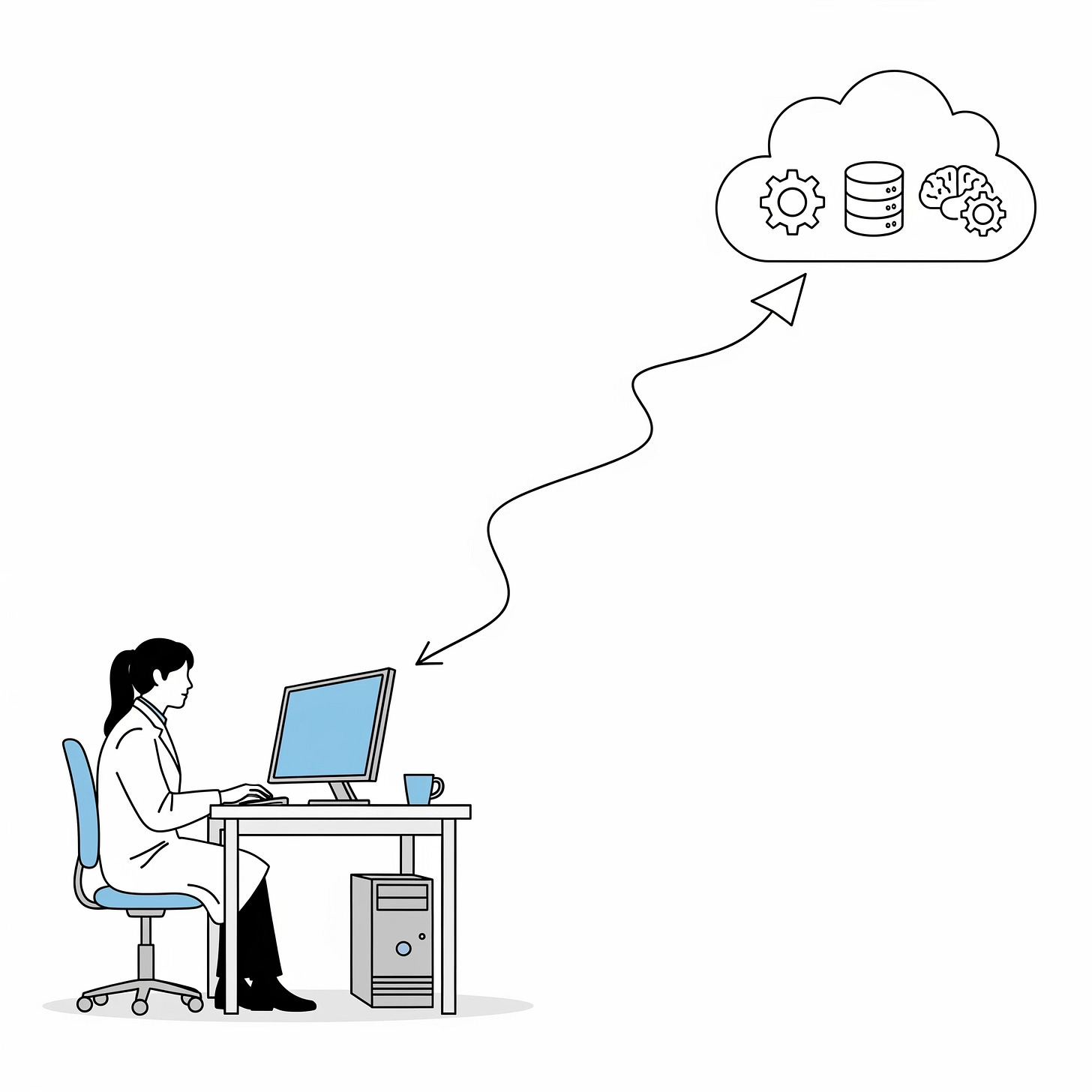The Role of Cloud Computing in Data Science
Beyond the Desktop: How Cloud Computing is Revolutionizing Data Science
Gone are the days when a data scientist needed a supercomputer in their office to handle massive datasets and train complex models. Today, cloud computing has become an indispensable tool in data science, democratizing access to powerful resources and completely changing the way data professionals work. Cloud computing provides on-demand access to a vast ecosystem of computing power, storage, and specialized tools over the internet. This shift has made data science more scalable, collaborative, and accessible than ever before.
For any data scientist, from a freelance professional to a large corporate team, understanding the core role of cloud computing is no longer optional. It's the engine that powers modern data workflows, allowing you to move beyond the limitations of local machines and focus on what truly matters: extracting valuable insights from data. This guide will explain the key ways cloud computing has transformed data science and highlight the specific tools and platforms that are essential for today's data professional.
Why Cloud Computing is a Game-Changer for Data Science 🤔
Cloud platforms provide solutions to some of the biggest challenges in data science.
Scalability and Elasticity: Data science projects often involve working with datasets that can grow from gigabytes to terabytes, or even petabytes. Cloud computing allows you to scale your computing power and storage up or down instantly, on demand. You only pay for what you use, avoiding the expensive, fixed costs of buying and maintaining physical hardware.
Access to Powerful Tools: Cloud providers offer a wide range of pre-built, managed services and tools that would be difficult or impossible to set up and maintain on your own. This includes everything from data warehouses and machine learning platforms to serverless computing and real-time data processing.
Enhanced Collaboration: The cloud makes it easy for data teams to work together from anywhere in the world.Teams can share data, code, and models in a centralized, secure environment, which streamlines workflows and accelerates projects.
Cost-Effectiveness: The "pay-as-you-go" model of cloud computing allows individuals and small businesses to access the same powerful resources as large corporations. This levels the playing field, enabling ambitious projects that would otherwise be too costly.
Simplified Infrastructure Management: Cloud providers handle the complex work of server maintenance, security, and scaling. This allows data scientists to focus on their core tasks: data analysis, model building, and deriving insights.
Essential Cloud Platforms and Tools for Data Science 🛠️
The major cloud providers offer a comprehensive suite of tools tailored for every step of the data science workflow.
Amazon Web Services (AWS): The largest cloud provider, known for its extensive ecosystem. Key services for data science include Amazon S3 for scalable data storage, Amazon Redshift for data warehousing, and Amazon SageMaker, a fully managed platform for building, training, and deploying machine learning models.
Google Cloud Platform (GCP): A top choice for projects involving big data and AI. Its flagship services include BigQuery, a highly scalable and serverless data warehouse, and Vertex AI, a unified platform that simplifies the end-to-end machine learning workflow.
Microsoft Azure: A popular choice for enterprises that already use Microsoft products. Azure Machine Learning is a robust platform for developing and managing ML models, and it integrates seamlessly with other Microsoft tools like Power BI.
Each of these platforms offers a similar set of services for data storage, data processing, machine learning, and visualization. The best choice often depends on your specific project needs, budget, and the existing tools your team is familiar with.
The adoption of cloud computing has fundamentally changed the landscape of data science. It has moved the industry from being a capital-intensive field to one that is more agile and innovation-focused. By leveraging the power of the cloud, data scientists can handle larger projects, collaborate more effectively, and bring groundbreaking solutions to life.
#DataScience #CloudComputing #MachineLearning #BigData #AWS #GoogleCloud #Azure #DataAnalytics #TechTools #FunctioningMedia





